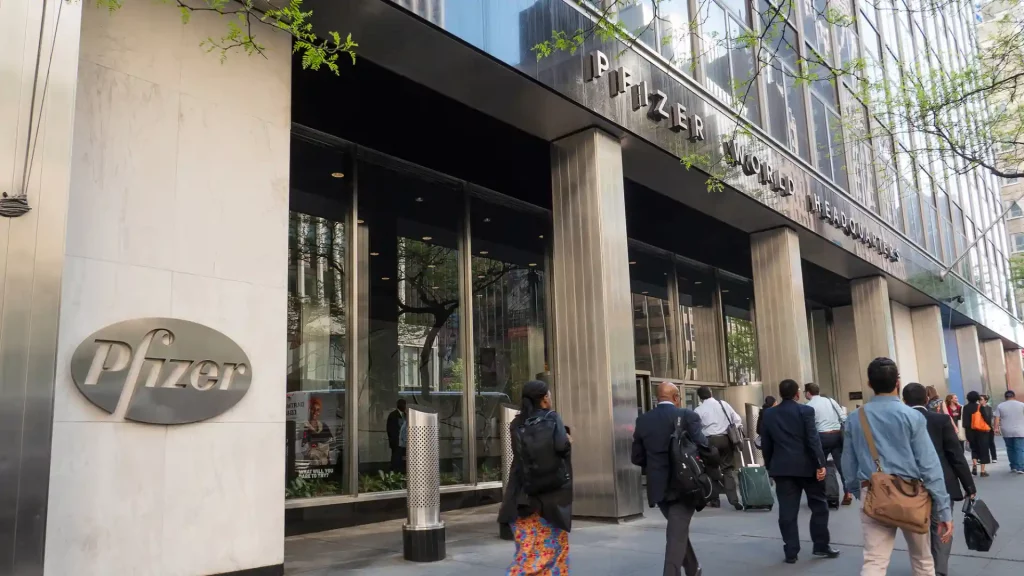Pfizer Inc. is shifting its strategic focus from COVID to cancer pharmaceuticals in an effort to recover from a turbulent year marked by a large reduction in COVID-19-related revenue. Last week, during an investor’s meet-up, the pharmaceutical giant debuted a 60-second Super Bowl commercial that emphasised their effort to “outdo cancer,” as well as their expanded venture into oncology, during the investor event.
The New York-based multinational pharmaceutical and biotechnology company specialising in developing, manufacturing, and marketing medications and vaccines, plans to make a significant change by increasing the percentage of biologic treatments from 6% to 65% in its oncology portfolio by 2030. Biologics have a longer income potential and can be a smart step to offset the Inflation Reduction Act’s possible price pressure. This change comes after a difficult time for Pfizer, during which its stock fell by more than 40% in 2023, erasing over $100 billion in market worth.
At the investor day, Pfizer highlighted its ambitions for post-acquisition after merging with Seagen, a US-based manufacturer of targeted cancer drugs, underscoring the shift towards oncology.
Pfizer Doubles Down on Oncology With Seagen Acquisition
According to a reliable news source, Pfizer‘s oncology medication pipeline has increased to 60 distinct experimental initiatives as a result of the $43 billion Seagen acquisition. The business predicted at least eight blockbuster medications by 2030, although it did not reveal which ones.
The paper goes on to say that many analysts project a number of years until pivotal clinical trial data for Pfizer’s mid-stage cancer treatments are shown, which carries some risk. Additionally, the blockbuster medications Xtandi and Ibrance are seeing diminishing revenues, which puts pressure on the existing oncology portfolio due to competition.
By utilising the combined knowledge and resources of Pfizer and Seagen, the company launched a specialised oncology division under the direction of Chris Boshoff, Chief Oncology Officer and Executive Vice President at Pfizer. Boshoff emphasised that Pfizer has eleven manufacturing facilities generating cancer medications on three continents, demonstrating the company’s global reach.
The oncology branch of Pfizer will concentrate on tumours of the breast, genitourinary, thoracic, and haematological-oncology systems. By 2030, the company anticipates that genitourinary cancer will account for the majority of its oncology sales, spurred by continued advancements such as disitamab vedotin and investigational ADCs.
RSV Vaccine Broadening Its Reach and Targeting Combinations
Nearly 10% in 2023, the hematology-oncology franchise is predicted to make almost 25% of the cancer unit’s sales by 2030.
Pfizer is actively expanding the age range of high-risk patients (18 to 59) to whom its respiratory syncytial virus vaccine is administered. The business is also creating vaccination combinations that combat several respiratory viruses.
Other than vaccines, Pfizer is also working on GBT601, which is an oral treatment for sickle cell disease. By mid-year 2022, GBT601 was also considered a sickle haemoglobin (HbS) polymerisation inhibitor of the next generation, which was entering a Phase 2/3 trial. Currently, it’s repositioning itself to be a better medicine than its existing drug, Oxbryta.
Pfizer’s efforts to treat obesity are attracting a lot of interest from investors. The business plans to release early-stage study results in the first half of 2024 for danuglipron, its experimental weight-loss medication, which is intended to be taken once daily.
